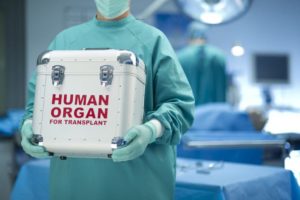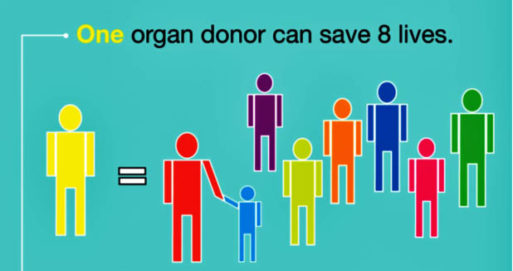They say one man’s trash is another man’s treasure. Put that adage in the context of organ donation, and the saying suddenly takes on new, life-saving meaning.
Statistics show one donor can save up to eight lives with precious organs that would otherwise be cremated or buried. And with 20 people a day dying while waiting for organ transplants, the figure offset is staggering.

Credit: publimetro.cl
Opt-out Context
The United Network for Organ Sharing data not only details the significance of organ donation, it shows the seriousness of doing nothing about it.
It’s all in how you ask and answer the question, according to a couple of behavioral economists, Dan Ariely and Richard Thaler as reported in New York Magazine.
The January 2017 report, “France’s New Opt Out Organ Donation System is a Good Idea,” details how filling out an online form if you do not want to give your organs away can save lives. In France, if a citizen does not fill out a refusal form on the internet, their organs can be transplanted to save another’s life unless specific instructions not to do so were given to a family member or a treating physician. “Context matters, and so does culture,” according to the report. “People are complicated, to say the least. But here’s something intriguing to consider: Perhaps opt-out policies are useful in part because they change what it means to be an organ donor.”
Definition is a definitely a deciding factor, per a 2012 Proceedings of the National Academy of Science report. “Three studies provide evidence that this difference in participation may occur in part because the requirement to opt-in or opt-out results in large differences in the meaning that individuals attach to participation,” according to the article.

Credit: goqii.com
Opt-out Studies
Studies further show how significant sentiment can be in the notion of opt-out organ donation. Stanford University gathered data that shows that when society adheres to expected norms, healthy organs die unnecessarily.
“People tend to conform to the status quo. In an opt-out country, the status quo is to donate organs upon death. A simple adjustment to the phrasing of the default option in the United States has the potential to lead more people towards organ donation and, consequently, saving thousands of lives,” according to the report. Unlike in America –where organ donation is a matter of checking a square on your license — Australia shows how checking nothing automatically authorizes organ donation.
“In these so-called opt-out countries, more than 90 percent of people donate their organs. Yet in countries such as U.S. and Germany, people must explicitly “opt in” if they want to donate their organs when they die. In these opt-in countries, fewer than 15 percent of people donate their organs at death,” according to the study.
When it comes down to numbers, it is a sad truth that healthy organs are laid to rest when they could save another life. That is something to consider. Next time it may be you or a loved who becomes a statistic while waiting for an organ.

 Opt-out Organ Donation Saves Lives
Opt-out Organ Donation Saves Lives


 Our Annual Seven Holiday Gifts for Someone Who Is Grieving, 2024 Edition
Our Annual Seven Holiday Gifts for Someone Who Is Grieving, 2024 Edition
 “Making Mobiles” by Karolina Merska
“Making Mobiles” by Karolina Merska
 “Hands Up to the Sky” by Michael Franti & Spearhead
“Hands Up to the Sky” by Michael Franti & Spearhead














